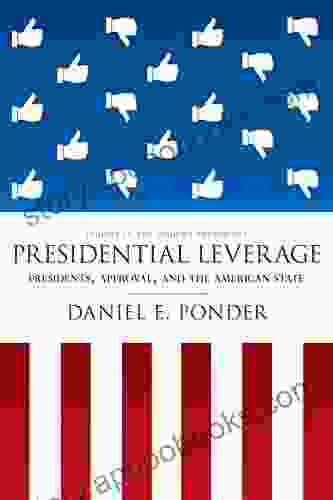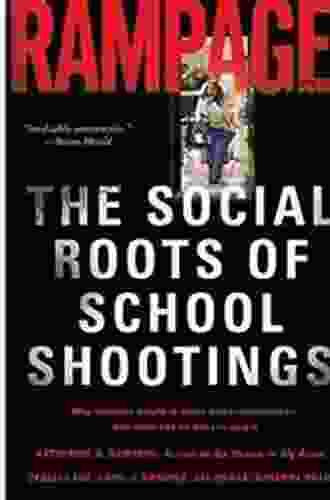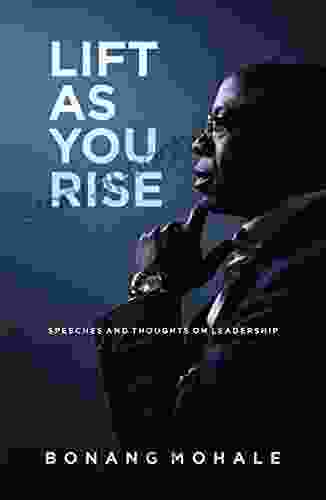Presidents Approval And The American State Studies In The Modern Presidency

The presidency is the most powerful office in the world. The president of the United States is responsible for leading the country, both domestically and internationally. The president also has the power to veto laws passed by Congress, and to appoint judges to the Supreme Court.
5 out of 5
| Language | : | English |
| File size | : | 14607 KB |
| Text-to-Speech | : | Enabled |
| Screen Reader | : | Supported |
| Enhanced typesetting | : | Enabled |
| Word Wise | : | Enabled |
| Print length | : | 269 pages |
Presidential approval ratings are a measure of how popular the president is with the American people. Approval ratings are typically measured by polls, which ask people whether they approve or disapprove of the president's job performance.
Presidential approval ratings can have a significant impact on the president's ability to lead the country. A president with high approval ratings is more likely to be able to pass his or her agenda through Congress, and to be successful in foreign policy initiatives.
A president with low approval ratings, on the other hand, is more likely to face opposition from Congress and the public. A president with very low approval ratings may even be impeached or forced to resign.
There are a number of factors that can influence presidential approval ratings. These factors include the state of the economy, the president's handling of foreign affairs, and the president's personal popularity.
The state of the economy is one of the most important factors that can influence presidential approval ratings. A president who presides over a strong economy is more likely to have high approval ratings, while a president who presides over a weak economy is more likely to have low approval ratings.
The president's handling of foreign affairs can also have a significant impact on approval ratings. A president who is seen as being strong and decisive in foreign policy is more likely to have high approval ratings, while a president who is seen as being weak or indecisive is more likely to have low approval ratings.
The president's personal popularity can also play a role in approval ratings. A president who is seen as being likeable and charismatic is more likely to have high approval ratings, while a president who is seen as being unlikeable or uncharismatic is more likely to have low approval ratings.
Presidential approval ratings are a complex and ever-changing phenomenon. A number of factors can influence approval ratings, and the impact of approval ratings can vary depending on the circumstances.
The Impact of Presidential Approval on the American State
Presidential approval ratings can have a significant impact on the American state. A president with high approval ratings is more likely to be able to pass his or her agenda through Congress, and to be successful in foreign policy initiatives.
A president with low approval ratings, on the other hand, is more likely to face opposition from Congress and the public. A president with very low approval ratings may even be impeached or forced to resign.
There are a number of ways in which presidential approval ratings can affect the American state. First, approval ratings can affect the president's ability to pass legislation through Congress.
A president with high approval ratings is more likely to be able to persuade Congress to pass his or her agenda. This is because members of Congress are more likely to support a president who is popular with the public.
A president with low approval ratings, on the other hand, is less likely to be able to pass his or her agenda through Congress. This is because members of Congress are less likely to support a president who is unpopular with the public.
Second, approval ratings can affect the president's ability to conduct foreign policy.
A president with high approval ratings is more likely to be able to persuade other countries to cooperate with the United States. This is because other countries are more likely to respect a president who is popular with his or her own people.
A president with low approval ratings, on the other hand, is less likely to be able to persuade other countries to cooperate with the United States. This is because other countries are less likely to respect a president who is unpopular with his or her own people.
Third, approval ratings can affect the president's ability to lead the country.
A president with high approval ratings is more likely to be able to unite the country behind his or her agenda. This is because people are more likely to follow a leader who is popular with the public.
A president with low approval ratings, on the other hand, is less likely to be able to unite the country behind his or her agenda. This is because people are less likely to follow a leader who is unpopular with the public.
Presidential approval ratings are a complex and ever-changing phenomenon. A number of factors can influence approval ratings, and the impact of approval ratings can vary depending on the circumstances.
However, it is clear that presidential approval ratings can have a significant impact on the American state. A president with high approval ratings is more likely to be able to pass his or her agenda through Congress, to be successful in foreign policy initiatives, and to lead the country effectively.
A president with low approval ratings, on the other hand, is less likely to be able to pass his or her agenda through Congress, to be successful in foreign policy initiatives, and to lead the country effectively.
5 out of 5
| Language | : | English |
| File size | : | 14607 KB |
| Text-to-Speech | : | Enabled |
| Screen Reader | : | Supported |
| Enhanced typesetting | : | Enabled |
| Word Wise | : | Enabled |
| Print length | : | 269 pages |
Do you want to contribute by writing guest posts on this blog?
Please contact us and send us a resume of previous articles that you have written.
 Book
Book Novel
Novel Page
Page Chapter
Chapter Text
Text Story
Story Genre
Genre Reader
Reader Library
Library Paperback
Paperback E-book
E-book Magazine
Magazine Newspaper
Newspaper Paragraph
Paragraph Sentence
Sentence Bookmark
Bookmark Shelf
Shelf Glossary
Glossary Bibliography
Bibliography Foreword
Foreword Preface
Preface Synopsis
Synopsis Annotation
Annotation Footnote
Footnote Manuscript
Manuscript Scroll
Scroll Codex
Codex Tome
Tome Bestseller
Bestseller Classics
Classics Library card
Library card Narrative
Narrative Biography
Biography Autobiography
Autobiography Memoir
Memoir Reference
Reference Encyclopedia
Encyclopedia Susan Wiggs
Susan Wiggs Lee Jordan
Lee Jordan Rose Marie Kern
Rose Marie Kern Scribes Of Sulterra
Scribes Of Sulterra Frederick Douglass
Frederick Douglass Romell Mcleod
Romell Mcleod Sean Russell
Sean Russell Nan Mcdonald
Nan Mcdonald Petros C Mavroidis
Petros C Mavroidis Stella Marie Alden
Stella Marie Alden Peter Manuel
Peter Manuel Lydia M Hawke
Lydia M Hawke Regina G Richards
Regina G Richards Wayne Grant
Wayne Grant Zoe Hitzig
Zoe Hitzig Tom Alesia
Tom Alesia Roger Smith
Roger Smith Rakesh Satyal
Rakesh Satyal Sarah R Burns
Sarah R Burns Steven M Friedson
Steven M Friedson
Light bulbAdvertise smarter! Our strategic ad space ensures maximum exposure. Reserve your spot today!

 Heath PowellNew Tricks for Scarves, Hats, Jewelry, and Other Accessories: Elevate Your...
Heath PowellNew Tricks for Scarves, Hats, Jewelry, and Other Accessories: Elevate Your...
 Jedidiah HayesDiscover the Enchanting World of Dinosaurs with First Little Readers All...
Jedidiah HayesDiscover the Enchanting World of Dinosaurs with First Little Readers All... Samuel WardFollow ·8.6k
Samuel WardFollow ·8.6k José SaramagoFollow ·17.5k
José SaramagoFollow ·17.5k Virginia WoolfFollow ·13.2k
Virginia WoolfFollow ·13.2k Zachary CoxFollow ·5.5k
Zachary CoxFollow ·5.5k Marc FosterFollow ·6.9k
Marc FosterFollow ·6.9k Hugh ReedFollow ·16.8k
Hugh ReedFollow ·16.8k Brett SimmonsFollow ·16.9k
Brett SimmonsFollow ·16.9k Colin RichardsonFollow ·8k
Colin RichardsonFollow ·8k

 Jorge Luis Borges
Jorge Luis BorgesUnlock Your Inner Musician: The Ultimate Guide to...
Embark on a Musical...

 Carlos Drummond
Carlos DrummondQuick Reference Guide To Percussion Instruments And How...
Unleash your inner rhythm with...

 Roberto Bolaño
Roberto BolañoUnlock Your Guitar Potential: The Ultimate Guitar Mastery...
Are you ready...

 Fred Foster
Fred FosterLooking for Lady Dee: A Punk Rock Mystery
By [Author's Name] Looking for Lady Dee is...

 Jacques Bell
Jacques BellJourney into the Mystical Realm of "Heaven Polly Alice...
In the tapestry of literature, where...

 Julio Ramón Ribeyro
Julio Ramón RibeyroSixty Years of Hits: A Musical Journey Through Time
Music has the...
5 out of 5
| Language | : | English |
| File size | : | 14607 KB |
| Text-to-Speech | : | Enabled |
| Screen Reader | : | Supported |
| Enhanced typesetting | : | Enabled |
| Word Wise | : | Enabled |
| Print length | : | 269 pages |








